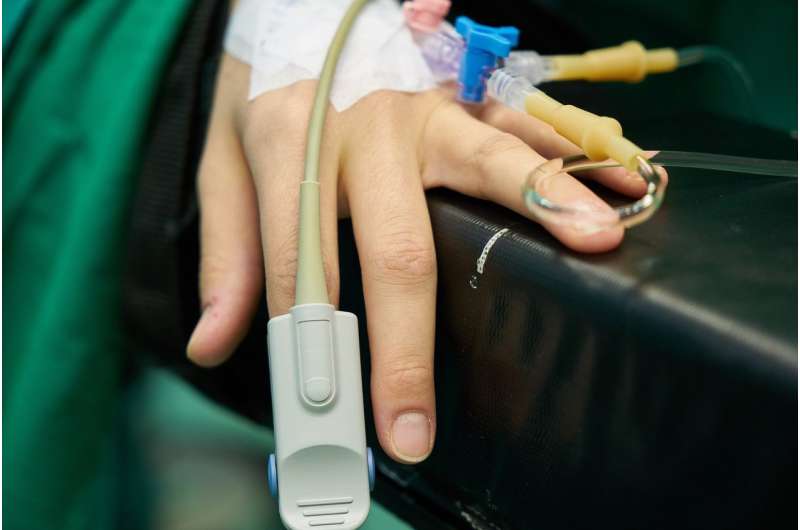New treatment prevents transplant rejection

A new treatment strategy could increase the success rate of stem cell transplants, according to University of Queensland researchers.
The approach removes the need for donor matching and the use of immunosuppressant drugs to prevent rejection, and could make stem cell treatment accessible to more patients.
UQ Diamantina Institute researcher Dr. Jatin Patel said researchers found immunosuppressant drugs had a negative impact on the transplanted stem cells.
"Patients receiving a donation of stem cells from an unrelated individual normally need to take medication to suppress their immune system to prevent rejection," he said.
"When we injected stem cells to repair blood vessels, we noticed those cells were damaged by the immunosuppressant drugs.
"The stem cells did not work properly and the damaged blood vessels were not repaired.
"We found that without immunosuppression therapy, the delivered stem cells actually functioned better and may have a better likelihood of superior clinical outcomes for the patient."
UQDI dermatologist Associate Professor Kiarash Khosrotehrani said the treatment could be used for patients with chronic wounds caused by diseases such as peripheral vascular disease and limb ischemia.
"Chronically ill patients with extensive lower limb wounds due to poor blood flow are generally unable to undergo invasive surgical procedures and end up with amputation," Dr. Khosrotehrani said.
"Our approach would reduce the burden of these chronic wounds by presenting an option for stem cell therapy without the worry of patients getting additional infections while taking immunosuppressive drugs."
Dr. Patel said the new treatment strategy harnessed the cells' existing features.
"The strategy worked by combining two types of stem cells, one of which had 'in-built' immunosuppressant properties," he said.
"When injected together, the stem cells survived and functioned without the need for immunosuppressant drugs.
"Our patented technology to isolate these two stem cell types gives us confidence that such therapy can be trialled in patients in the future."
The study is published in Stem Cells Translational Medicine
More information: Immunosuppression Agent Cyclosporine Reduces Self‐Renewal and Vessel Regeneration Potentiation of Human Endothelial of Colony Forming Cells. Stem Cells Translational Medicine. doi.org/10.1002/sctm.18-0103


















